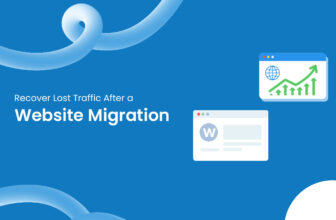
Bookkeeping would be helpful in making a business organise itself by taking care of the money, paying bills, and checking out whether the business profits or not. This encourages small businesses to keep running things smoothly daily. Bookkeeping records spending, aids in the timely payment of bills, and manages money. Amazing new technology has made bookkeeping grow easier, faster, and even more fun to use.
However, these changes hasten the process and limit errors so that the business owner can focus on expanding his businesses. Therefore, this blog shows six new trends and tools that change the bookkeeping services for small businesses, making it faster, more reliable, and simpler than ever.
Latest Trends and Technologies for Bookkeeping Services
1. Cloud-Based Bookkeeping
Cloud-based bookkeeping allows businesses to store their financial information online instead of on paper or computers. It helps businesses keep everything safe and easy to reach. Ultimately, business owners can check their accounts from anywhere using the internet.
Cloud-based bookkeeping lets you:
- Reach your data from anywhere: Business owners don’t have to stay in one place to manage their books. They can access their information wherever they are.
- Protect your data: Important information stays safe on secure servers.
- Work with others: Multiple people can view and work on the same data at the same time.
- Automate tasks: Regular tasks like sending invoices or paying employees happen automatically. Additionally, this saves time and reduces mistakes.
Cloud bookkeeping is a big step forward. Moreover, it helps businesses organise their money better and stay on top of everything with ease.
2. Automation and Artificial Intelligence (AI)
Artificial Intelligence (AI) takes over many tasks humans used to do manually. With AI, businesses spend less time on bookkeeping and reduce errors.
AI can help businesses by:
- Categorising expenses: AI tools scan receipts and sort them into categories like travel, food, or supplies. This helps business owners know where their money goes.
- Matching bank transactions: AI tools match up expenses and deposits with the right accounts. This keeps records accurate and updated.
- Predicting cash flow: AI tools analyse past money habits and predict how much money will come in or go out in the future.
AI tools make bookkeeping faster and smarter. Small businesses can focus on growing while AI handles routine tasks. In addition, it gives business owners more time to do what matters most for their companies.
3. Mobile Bookkeeping Apps
Mobile apps now let business owners manage their money from their phones. This means they don’t have to sit at a desk to keep track of spending or send invoices.
Mobile bookkeeping apps allow you to:
- Enter data quickly: Business owners can record spending right when it happens. Additionally, this keeps their books accurate and up-to-date.
- Send invoices: With mobile apps, they can create and send invoices from anywhere, making it easier to get paid faster.
- Track expenses: These apps also track spending by scanning receipts, so you don’t have to keep stacks of paper receipts.
- Receive alerts: Owners get notifications when something important happens, like an overdue bill or low bank balance.
With mobile apps, bookkeeping becomes easy and fast. It helps business owners stay organised while they work from anywhere.
4. Blockchain Technology
Blockchain is a new technology that keeps financial information safe and clear. It records every transaction in a way that can’t be changed, which helps businesses stay honest and secure.
Blockchain makes bookkeeping better by:
- Creating transparency: Everyone with permission can see all the transactions, which makes everything clear.
- Increasing security: Blockchain keeps records safe by encrypting them, so no one can change them.
- Ensuring accuracy: Since blockchain updates in real-time, businesses know everything is correct and up-to-date.
Blockchain also allows smart contracts, which complete payments automatically when conditions are met. This saves time and makes transactions simple. Ultimately, blockchain is changing the way businesses handle their money, and it’s something to keep an eye on.
5. Integration of Financial Tools
Many businesses use different tools to manage their finances, like payment systems and payroll software. Integration brings these tools together, so they work smoothly. Consequently, this saves businesses from entering the same information twice.
Integrated financial tools offer:
- Simple processes: Businesses don’t have to enter data into multiple systems anymore. Everything connects and updates automatically.
- Improved accuracy: When tools communicate, they reduce mistakes, making sure information is always correct.
- Up-to-date insights: Business owners can see real-time financial updates, which helps them make better decisions.
By integrating tools, bookkeeping becomes more organised and saves time. It helps businesses stay on top of their finances without extra work.
6. Data Analytics and Reporting
Data analysis enables businesses to get a good understanding of their financial health. For them, it would be meaningful reports than they have ever prepared in the past and it can help them understand where they are at, what works, and what doesn’t.
Data analytics can thus help in several ways:
- Report on financial health: Here the data analytics can help the business understand how well it is doing in terms of profits and losses, as well as spending trends.
- Trend analysis: Based on past records, business people can thereby understand what their spending patterns are doing. And what their earnings trends are doing so as to enable wiser decisions.
- Planning ahead: Analytics tools use past data to predict how the business will do in the future, helping owners to plan their next steps.
- Compliance: Analytics tools also help businesses follow the tax rules, so they avoid fines and penalties.
Data analytics is coming to be an integral part of bookkeeping. Small businesses can apply it for better growth, getting stronger and smarter by making wise decisions based on perfect, clear data.
The End Note
Overall, bookkeeping has gone completely all new with respect to new trends and technologies. Thus, the overall process of cloud-based bookkeeping, AI, mobile apps, blockchain, and data analytics eases up the bookkeeping services for small businesses. It is easier to bookkeep using such technologies since it simplifies the process, reduces mistakes, and saves time. Using such tools, businesses stay organised and prepared for the future. Bookkeeping has been faster, smarter, and more efficient and helps small businesses in this world get better.







